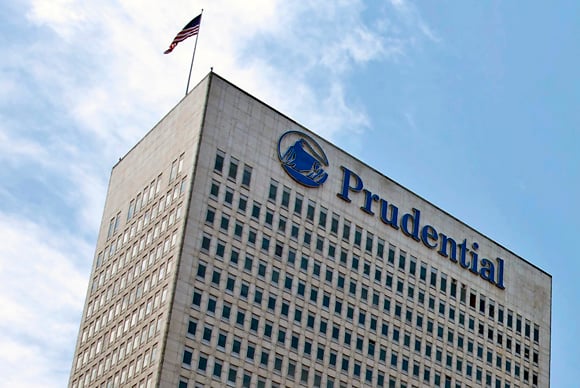Insurer faces asset liability management and longevity risks tied to pension obligations; 'credit negative'
Prudential Financial Inc.'s move to relieve General Motors Co. of some $26 billion in pension obligations is considered a “negative” event by Moody's Investors Service.
The ratings agency said the deal was a “credit negative” for the life insurer because the GM contract will represent more than 5% of Prudential's general account holdings.
In the deal announced earlier this month, 42,000 salaried GM retirees will be given the option of taking a lump sum payment or a monthly pension payment check, to be paid by Prudential, not GM. The plan kicks in Jan. 1. On that day, the remaining 76,000 salaried retirees will have their pension payment shifted to Prudential, as well.
“That amount poses a significant risk concentration, given the challenges of managing a long-duration portfolio, estimating longevity risk and investing any portion of the proceeds not provided through existing investments in a low-yield environment,” Scott Robinson, a senior vice president at Moody's, wrote in a research note Monday.
Though Prudential's expertise lies in managing mortality risk, taking on GM's pension liabilities opens the insurer to the risks that the automaker faced while it carried the obligation on its books. One example cited by Mr. Robinson: Prudential still will have to find sufficient long-duration investments to cover liability cash flows over a period of decades.
The carrier also is taking on the risk that the retirees would live longer than expected, he added, which would require Prudential to make more payments than anticipated.
“If they live longer than Pru forecasted, that negative surprise from the company's perspective will cut into the company's profit on the GM transaction,” Eric Berg, an analyst at RBC Capital Markets LLC, wrote in a June 4 note.
The deal will account for a large portion of Prudential's deployable capital. “If, hypothetically, GM transfers $20 billion of assets to Prudential, we expect the company to allocate at least 5% of assets or approximately $1 billion of capital,” Mr. Robinson wrote. The insurer had estimated it had about $2 billion to $2.25 billion in readily deployable capital as of the end of 2011.
Still, the deal has its upsides: Transferring the liability does provide a possible earnings source for Prudential and counterbalances the mortality exposure on its life insurance business, Mr. Robinson wrote.
Dawn Kelly, a spokeswoman for Prudential, said the insurer doesn't comment on reports from ratings agencies. "As a highly regulated insurance company, we're required to maintain sufficient capital and appropriate reserves to meet our obligations," she added.
Some analysts believe that more of these pension risk transfer deals are coming, For his part, Mr. Robinson believes that Prudential and MetLife Inc. are the two U.S.-based carriers large enough to shoulder deals of this magnitude. But midsize carriers may step up to meet demand from smaller firms, he added.
Whether there is indeed enough capacity in the industry to service a raft of underfunded defined-benefit pensions still a matter of debate among actuaries and consultants.
“Capacity is an issue,” said John Fenton, a director at Towers Watson. “Carriers are concerned about the fact that you can't get many good investments beyond 20 years. The supply of fixed income investments is limited and I think having enough capital to back these products is an issue for some companies.”
Don Fuerst, senior pension fellow at the American Academy of Actuaries, echoed that sentiment. “The unfunded retiree obligations of pension plans in the U.S. are in the hundreds of billions of dollars, and I don't think there's sufficient capacity to handle all that."
While few insurers are likely to follow Pru's lead in the near future, more of these transactions are likely in the long term, Mr. Fuerst predicted.
“The insurers will look for ways to raise additional capital to establish the capacity.”







